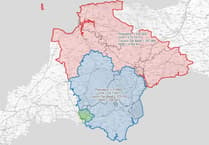All too often, the only interests our elected representatives seem to promote are their own. Local Government Reorganisation is an obvious case in point.
Intended, according to then Minister of State Jim McMahon, “to transfer power out of Westminster through devolution and to fix the foundations of local government,” the process in Devon has instead become a scramble by council leaders to grab neighbouring land and enlarge their fiefdoms to retain both position and control.
If some have their way, 13 largely rural parishes in the South Hams could be subsumed into Plymouth without their consent, while residents of 49 parishes around Exeter would be similarly absorbed into that city. Plymouth and Exeter both want to grow their populations to strengthen future bids for unitary status. Without such growth, Exeter in particular could be merged into a much larger authority combining Torridge, East Devon, Mid Devon and North Devon.
That alternative is part of the so-called “1-5-4” model put forward by Devon County Council and the eight district councils. Under this plan Plymouth would remain as it is, the “five” would merge Exeter with its neighbours, and the “four” would unite Torbay, Teignbridge, West Devon and the South Hams. Yet as Exeter councillor Ruth Williams asked her colleagues: “Where’s the localism in the 1-5-4 model? Where’s the localism in the One Devon model? It’s not there. How can they think that clunking five districts together, clunking four districts together, is going to work for those residents?” Few would disagree with her assessment.
If Plymouth and Exeter succeed, a third “rural and coastal unitary council” would be left to cover what remains of Devon after both cities have taken the communities they want. This patchwork authority would stretch from Axminster in the east to Tavistock in the west, Ilfracombe in the north and Salcombe in the south. Where the localism lies in such a vast territory is anyone’s guess, and how it could possibly deliver responsive services is even harder to imagine.
It is equally doubtful how any of these plans would “lead to better outcomes for residents, improved local accountability and savings which can then be reinvested in public services,” as the government claims. Plymouth and Exeter, both Labour-controlled and hoping to persuade a Labour government, may well succeed in keeping their own arrangements local – but for the rest of Devon, local government would be anything but local.
Nor does the 1-5-4 proposal offer meaningful improvement. The “four” alone would cover nearly 2,800 square kilometres – larger than counties such as Dorset, Derbyshire, Cheshire, Staffordshire and Nottinghamshire – far beyond the government’s own requirement for “stronger community engagement and genuine neighbourhood empowerment.” Residents already struggle to have their voices heard by current district councils; doubling or trebling the size of those authorities will only widen the gap.
Quite simply, none of the current proposals offer any clear benefit to the majority of Devon residents. And there are no obvious alternatives that satisfy the government’s demands. Like so much from Westminster, these changes are ill-judged, ill-thought through and destined to do nothing to address the real problems the country faces.





Comments
This article has no comments yet. Be the first to leave a comment.